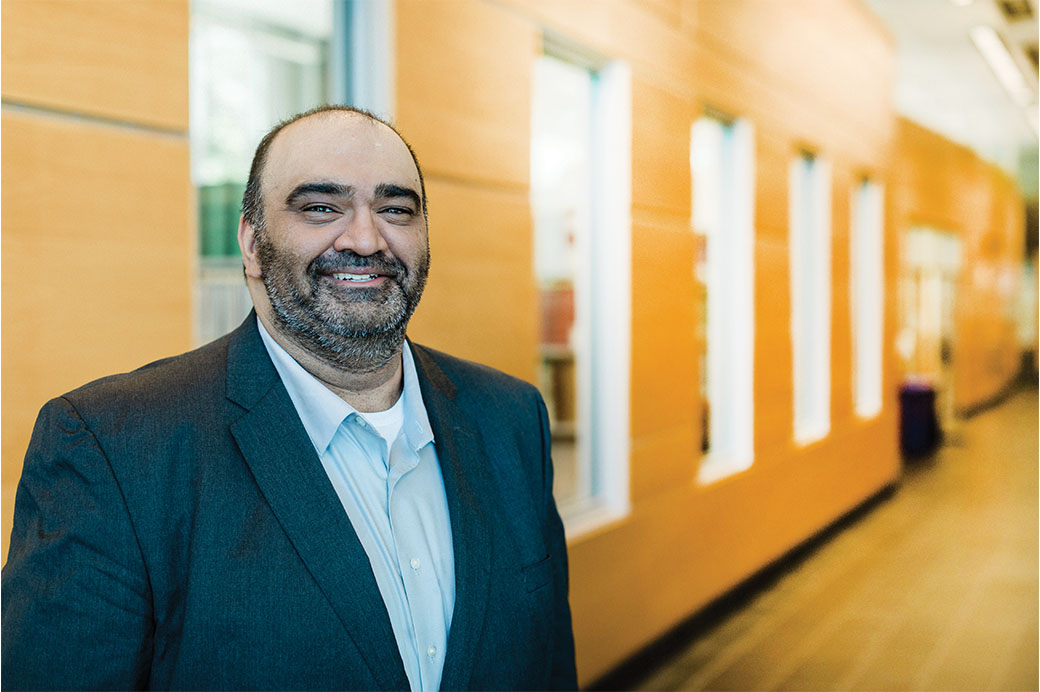
Prevention and Early Detection
Support BC Cancer’s World-Leading Prevention and Early Detection Research
For more information, contact Becky Yost, Director, Development. Please consider donating today.
50% Of Cancer Can Be Prevented
Cancer is the biggest health crisis of our lifetime and today. With the growth and aging of our population it is estimated that the number of new cancer cases in British Columbia will grow by 35% over the next decade: from 29,000 in 2020 to 39,000 in 2030.
Current research indicates that with a few simple tools, a staggering 50 per cent of cancers could be prevented. Yet cancer prevention remains under-researched, under-applied and underfunded. This must change.
A Personalized Approach To Cancer Prevention
Rather than applying broad strategies to the general population, BC Cancer’s prevention program takes a highly-individualized approach to the health and well-being of each person in the province, based on their age, lifestyle, genetic profile and family history.
With a strong emphasis on risk assessment, reduction and screening, the program will revitalize health care in British Columbia by stopping cancer before it starts. It will save lives.
Prevention Research Underway
The surest way to save lives is to stop cancer before it even starts. BC Cancer Prevention Team aims to reduce cancer risk for all British Columbians.
Director of prevention
Dr. Parveen Bhatti, senior scientist and director of prevention at BC Cancer studies occupational and environmental factors that contribute to cancer, and launched a clinical trial to test melatonin supplements as a natural way of reducing risk of cancer in shift workers who are at an increased risk of developing cancer due to their sleep patterns.
Ovarian cancer team’s bold mission
Dr. David Huntsman, co-founder and director of OVCARE (ovarian cancer research team), BC Cancer, and his team are developing tools to clearly and quickly identify key risk factors for ovarian cancer. Their goal is to cut ovarian cancer incidences in half.
Looking at lung cancer in “never-smokers”
Dr. Stephen Lam, chair of the Provincial Lung Tumour Group, BC Cancer, is studying “never-smokers” who develop lung cancer, looking for patterns in their life and family history, and analyzing environmental factors to better understand how their cancer was triggered.
Hereditary cancer screening
BC Cancer’s Hereditary Cancer Program is screening patients with advanced cancers for hereditary factors. If an inherited cause is discovered, their family members can also get screened and take steps to protect themselves from developing cancer.
Screening And Early Detection
Screening programs apply a relatively simple, inexpensive test to a large number of people in order to identify those with cancer risk factors, or who have the disease in its early stages. Screens are used for the types of cancers that when detected early, can reduce deaths.
BC Cancer provides screening programs for:
- Breast
- Cervical
- Colon
- Hereditary cancer
Screening is conducted across the province at the regional cancer centres, local hospitals and clinics. For more information, visit the BC Cancer website.
BC Cancer’s Oral Cancer Prevention Program works with dentists and dental hygienists in our communities to prevent the development of oral cancer, and to detect it at the earliest possible stage.
A lung cancer screening policy for the province is currently being considered, focusing on early detection of lung and bronchial cancer. For more information, please visit the Lung Health Study website.
Preventing Cancer Now
Knowledge of the risks associated with smoking and diet are widespread: smokers have an increased risk of many cancers and a greater than 10-fold risk of dying of lung cancer. Obesity, the result of poor diet and sedentary living, is associated with an 80% increase in overall cancer mortality.
Beyond this, very few individuals are aware of steps they can take to address the common risk factors for a wide spectrum of other cancers.
Although B.C. currently has population based screening programs for cervical, breast and colorectal cancer, only 60% of people who would benefit from these programs participate. This is a significant missed opportunity.
Studies show that:
- risk of a wide spectrum of cancers, including liver, kidney, pancreatic, breast and colorectal, is reduced through healthy diet and exercise;
- lung cancer mortality is reduced by 62% when smoking stops at age 50;
- cervical cancer mortality is reduced by 95% with screening and by 100% with vaccination against HPV;
- liver cancer mortality is reduced by 90% with vaccination against Hepatitis B; and
- breast and ovarian cancer risk is significantly reduced across generations with identification of BRCA mutations and removal of the fallopian tubes.
Our ability to prevent cancer has never been greater. The time is now to take action.
With Your Help, BC Can Cut Cancer In Half
With your support, BC Cancer scientists can better understand the root causes of cancer, and how we can prevent it in the first place. The program will affect change to the health and well-being of British Columbians on a massive scale.
Support BC Cancer’s World-Leading Prevention and Early Detection Research
For more information, contact Becky Yost, Director, Development. Please consider donating today.